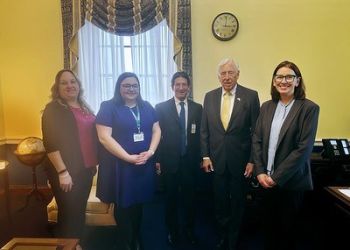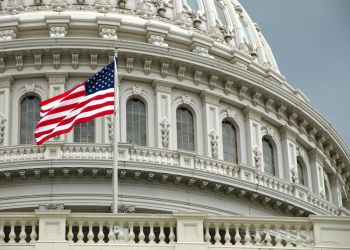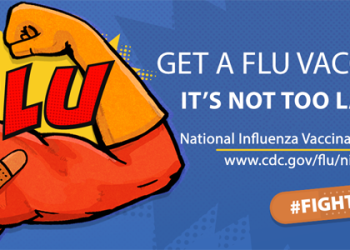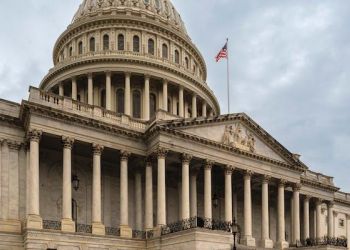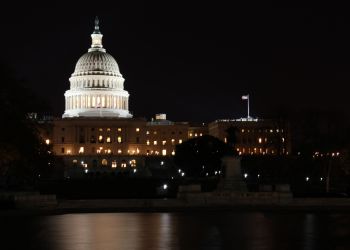On Thursday, March 31, 2022, the House Committee on Science, Space, and Technology Subcommittee on Investigations and Oversight held the hearing, “The New Normal: Preparing for and Adapting to the Next Phase of COVID-19.” The purpose of the hearing was to discuss the ongoing COVID-19 response, with a particular focus on data collection, communication, and how federal guidance can reflect the evolving COVID-19 threat while minimizing social disruption. NACCHO member Karen Ayala, Executive Director for DuPage County Health Department, served as a witness for the hearing. Other witnesses were
- Dr. Ezekiel Emanuel, Vice Provost for Global Initiatives, Co-Director of the Healthcare Transformation Institute, and Levy University Professor at the Perelman School of Medicine
- Dr. Mariana Matus, CEO and Co-founder of Biobot Analytics
- Dr. Lucy McBride, Practicing Primary Care Physician.
In her testimony, Ms. Ayala began by recognizing the crucial role local health departments have played in the country’s long and ongoing COVID-19 response. Speaking from her experience leading a health department that serves nearly one million residents, she noted the importance of local and consistently available data that can be used in real-time. She cited the role of interactive dashboards in DuPage County as a large reason for success in local pandemic mitigation efforts. However, she said there is room for growth in data interoperability and electronic data-sharing practices that can analyze broader trends in health outcomes. Specifically, she cited the results of at-home tests not being captured as a large challenge to local health leaders’ ability to track and report rates of disease. Ms. Ayala also stressed the importance of local health departments to be prepared for the release of national guidelines in advance so they can send out coherent messages tailored to their community. Spotlighting one of NACCHO’s legislative priorities in her testimony, Ms. Ayala voiced the need for sustained investments in local public health infrastructure to enhance local health department capabilities and prepare for future emergencies.
All four witnesses, including Ms. Ayala, highlighted the need for Federal investments in data and information systems. Chairman Bill Foster (D-IL) asked the witnesses what lessons can be drawn from COVID-19 and past public health crises. Dr. Emauel described the importance of data metrics at the local level, saying that there is no one data metric that is the answer. When asked by the Chairman how to approach mitigation efforts within different population groups, Dr. McBride said that safety measures need to vary based on population-level data that demonstrate who is most at-risk for serious illness. Rep. Sean Casten (D-IL) continued the conversation, asking Ms. Ayala about scarce resource allocation. She stated the importance of transparency, citing the need for publicly available metrics to track resource allocation and decision-making.
The witnesses pointed to pervasive misinformation and a lack of trust in health care professionals as barriers to mitigation efforts. Ms. Ayala described the need for uniform public health communication from local, state, and federal public health agencies. She recounted missteps earlier in the COVID-19 pandemic response that could have been averted by properly preparing local health departments with up-to-date, easy-to-understand public health messaging. Dr. McBride and Dr. Emmanuel cited relationship trust between public health institutions and communities as crucial to relaying the severity of public health crises. Ranking Member Jay Obernolte (R-CA) discussed the politicization of the pandemic response and asked how to address pervasive misinformation. Ms. Ayala recommended speaking up against falsehoods rather than ignoring them. Similarly, Dr. Emmanuel and Dr. MacBride explained how mitigation communication needs to be tailored to specific communities, providing different recommendations based on the vulnerability of the population.
Looking toward the next phase of the pandemic, witnesses discussed the need for reliable data collection measures such as population-level immunity data and wastewater collection. Dr. Emanuel focused particularly on the need to rely on up-to-date data and metrics when considering how to implement increased protective measures. All witnesses testified to the need for coordinated communication from federal, to state, to local, to community residents. Both the witnesses and members alike echoed the need to prioritize education and mental health in local communities as cases continue to decline. The hearing ended with a discussion on the opportunities for advanced tracking and disease surveillance through wastewater management. Both Reps. Casten and Stephanie Bice (R-OK) questioned Dr. Matus on the value of wastewater data. She explained how wastewater data signaled the height of the coronavirus variants two weeks before other surveillance systems, demonstrating the importance of wastewater testing as the future of data monitoring systems.
NACCHO also added to the Subcommittee’s conversation by providing a letter for the record on the hearing.



